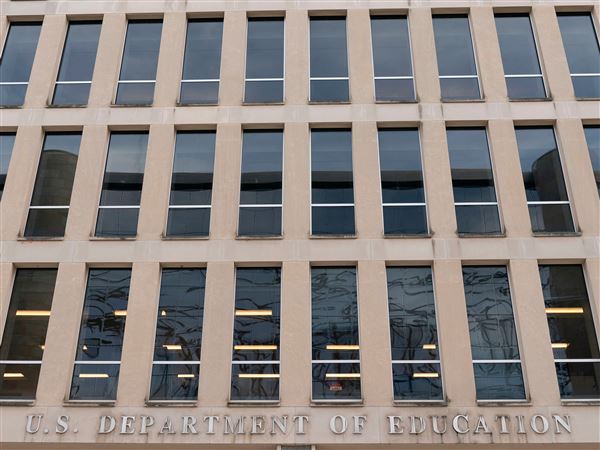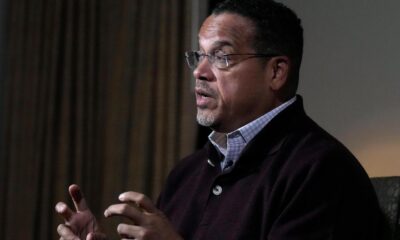Education
Education Secretary Calls for Cabinet-Level Office Reevaluation

U.S. Secretary of Education Linda McMahon recently asserted that the 43-day government shutdown had no significant effect on education across the country. Her comments, made during a news segment last week, have prompted a discussion about the necessity of maintaining the Department of Education as a Cabinet-level office.
McMahon emphasized that the lack of disruptions in educational services during the shutdown demonstrates the department’s limited impact on the day-to-day functioning of schools. This statement raises questions about the role and relevance of the Department of Education in the current political climate.
Reevaluating the Role of the Education Department
The U.S. education system is largely managed at the state and local levels, where funding and policy decisions typically originate. McMahon’s remarks suggest that the federal government may not need to be as deeply involved in education as previously thought. She pointed out that the continuity of educational services during the shutdown highlights a potential redundancy in the federal oversight of education.
This perspective is not entirely new. In recent years, various political figures have called for a downsizing of federal agencies, arguing that many functions can be managed more effectively at local levels. The efficacy of the Department of Education has been a point of contention, especially among those who advocate for limited federal government involvement in states’ affairs.
Implications for Future Policy
If the Department of Education were to be demoted or restructured, it could have wide-ranging implications for federal education policy. Advocates for the department argue that federal oversight is essential to ensure equitable access to education across all states, particularly in underserved communities. They contend that the department plays a crucial role in setting national standards and providing support for low-income schools.
Critics, however, echo McMahon’s sentiments, suggesting that a shift towards local governance could foster innovation and responsiveness to community needs. As discussions about the department’s future continue, stakeholders will likely weigh the trade-offs between federal and local control.
The conversation surrounding the role of the Department of Education is part of a larger debate about the effectiveness of various government agencies. As the landscape of education evolves, the decisions made today will shape the future of education policy in the United States.
-

 Technology5 months ago
Technology5 months agoDiscover the Top 10 Calorie Counting Apps of 2025
-

 Technology2 weeks ago
Technology2 weeks agoOpenAI to Implement Age Verification for ChatGPT by December 2025
-

 Health3 months ago
Health3 months agoBella Hadid Shares Health Update After Treatment for Lyme Disease
-

 Health3 months ago
Health3 months agoAnalysts Project Stronger Growth for Apple’s iPhone 17 Lineup
-

 Health3 months ago
Health3 months agoErin Bates Shares Recovery Update Following Sepsis Complications
-

 Technology5 months ago
Technology5 months agoDiscover How to Reverse Image Search Using ChatGPT Effortlessly
-

 Technology3 months ago
Technology3 months agoElectric Moto Influencer Surronster Arrested in Tijuana
-

 Technology2 months ago
Technology2 months agoDiscover 2025’s Top GPUs for Exceptional 4K Gaming Performance
-

 Technology5 months ago
Technology5 months agoMeta Initiates $60B AI Data Center Expansion, Starting in Ohio
-

 Technology5 months ago
Technology5 months agoRecovering a Suspended TikTok Account: A Step-by-Step Guide
-

 Health5 months ago
Health5 months agoTested: Rab Firewall Mountain Jacket Survives Harsh Conditions
-

 Lifestyle5 months ago
Lifestyle5 months agoBelton Family Reunites After Daughter Survives Hill Country Floods





















